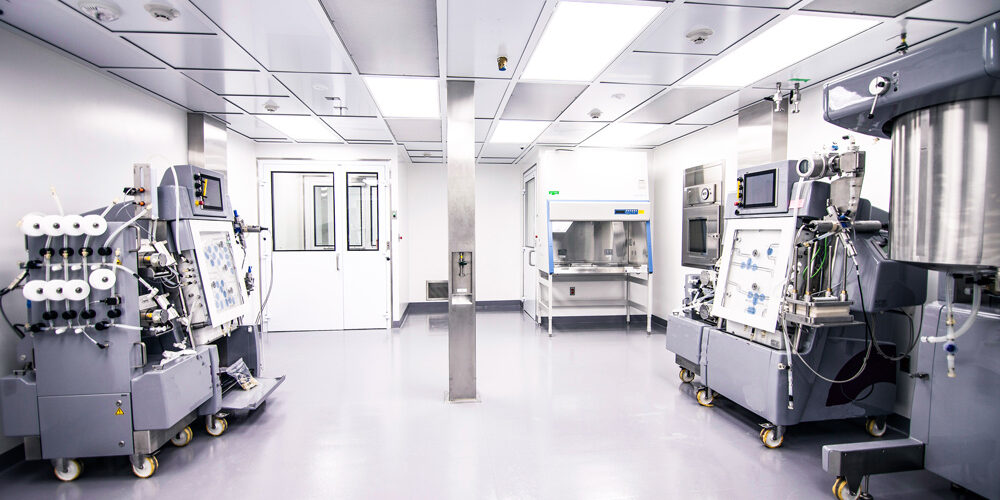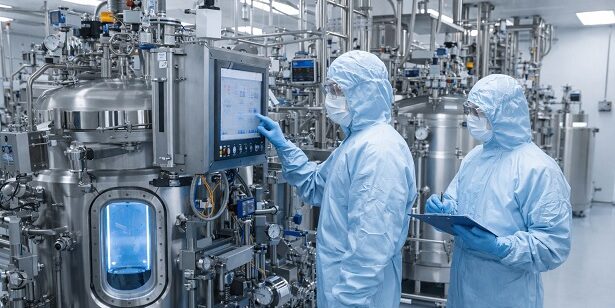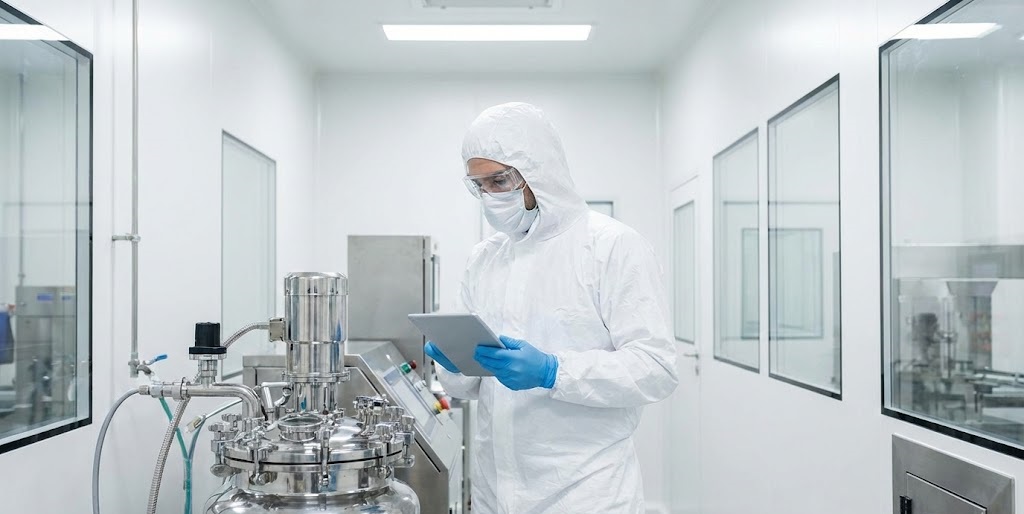Pharma careers are rapidly shifting toward technology, automation, and digital systems. ISPE Pharma 4.0™ surveys show that nearly 85% of companies are already running digital initiatives, while only about 15% have not started. This change pushes students and professionals to seek pharma technology courses that blend data, GMP, and AI literacy.
ISPE also reports that around 80% of manufacturers see a skills mismatch between current staff and digital needs.As a result, demand for tech-enabled roles is soaring, and every smart pharma course now highlights data analytics, MES, computerized system validation, plus automation skills today.
Table of Contents
What Are Pharma Technology Courses?
Pharmaceutical technology courses teach how pharma works with automation and digital tools. They cover digital documentation, LIMS, MES, equipment technology, AI tools, and data systems. Students see how software, sensors, and GMP rules connect in daily operations.
These courses focus on job skills, not only theory. Moreover, you learn how to read dashboards, trend data, and support faster decisions. Many programs report 70% of graduates move into tech roles within two years. Therefore, pharma companies prefer candidates who completed at least one pharma technology course. Typical course length ranges from 20 to 40 study hours.
Key course design comparisons:
Workload split: 40% lectures, 60% practical labs.
Tech focus: 50% equipment automation, 50% digital data systems.
Assessment mix: 70% projects, 30% quizzes.
Core Areas Covered in Pharmaceutical Technology Courses
Core areas covered in pharmaceutical technology courses usually cluster into four domains. Pharma students learn how equipment, software, and data connect in one workflow. Moreover, each domain supports faster production, fewer errors, and better GMP decisions.
Most programs build content around clear domains. You explore automation, digital quality, pharma software, and data with AI. Therefore, these courses link daily pharma tasks with modern Industry 4.0 projects.
You learn how each domain supports GMP, speed, and safer patient outcomes. Teachers usually mix short lessons with practice from real plants. This structure keeps ideas concrete and prepares you for tech-focused roles.
Core domains (numbered):
Automation & Manufacturing Systems – lines, robots, PLCs.
Digital Quality Systems – eLogs, deviations, CAPA workflows.
LIMS, MES & Pharma Software Tools – sample, batch, equipment tracking.
Data & AI Skills for Pharma – dashboards, models, automation scripts.

Automation & Manufacturing Systems
Pharmaceutical technology courses cover Automation and Manufacturing Systems that keep lines fast, accurate, compliant.
Robots and conveyors
PLCs and sensors
Moreover, pharma automation training teaches setup, monitoring, and safe shutdown of critical equipment.
Batch speed vs downtime
Manual effort vs reliability
Pharmaceutical engineering courses explain Digital Quality Systems for compliant production. Students replace paper logs with eLogs, deviations, and CAPA workflows.
Moreover, pharma tech programs teach dashboards, audit trails, and e-signatures. Around 70% of training time mirrors real GMP quality tasks.
LIMS, MES & Pharma Software Tools
Pharmaceutical engineering courses teach LIMS and MES for structured data. Most of pharma tech programs include key software practice.
Moreover, these tools track samples, batches, and critical equipment. Students learn dashboards, audit trails, and alerts for faster GMP decisions.
Data & AI Skills for Pharma
Data and AI skills help pharma teams read trends and stop issues early. Moreover, students use pharma software tools to turn clean data into smart decisions.
Digital QA systems need experts who build models
Tune limits
Read alerts fast
Types of Pharma Technology Courses Available
Pharmaceutical technology courses come in formats for different goals and stages. Students and freshers need foundations in GMP, software, and automation basics. Working professionals want deeper skills for digital projects and leadership.
Many starter courses suit people still in university or early roles. Moreover, they focus on simple tools, guided labs, and clear examples. Professionals prefer flexible formats with project work from real plants.
Short certification paths help both groups prove skills quickly. Therefore, many people add focused certificates in data, MES, or automation. Companies value candidates with several targeted certificates over one general course.
Course types compared:
For Students & Freshers: slower pace, more basics.
For Working Professionals: faster pace, deeper projects.
Certification Programs: shortest length, strongest proof.
How to Choose the Right Pharmaceutical Tech Course
Start with your goal and time budget. Choose courses that match your career direction. Check if content covers GMP, automation, software tools, and data basics. Confirm difficulty level fits your skills and feels realistic today.
Moreover, look at the teacher background and industry links. Prefer trainers who run real pharma projects. Review sample lessons and see if they use clear cases. Avoid programs that feel too generic or outdated. Check language options and subtitles if you study in English. Ask friends or mentors which courses helped them in practice.
Therefore, compare options with a simple checklist:
Match with role: student, operator, or engineer
Learning style: videos, labs, or mixed formats
Proof: certificate, project portfolio, or exam results
Final words
Pharma automation training cover automation, digital QA, and software tools. They connect GMP, GAMP 5, and Annex 11 with daily operations. You learn AI basics, data integrity, and computerized system thinking.
When you explore pharma courses, confirm coverage of FDA 21 CFR 11. Strong programs often split 40% theory and 60% hands-on projects. Moreover, they use real case studies to explain digital roles.
Choose options that fit your role, schedule, and growth targets. Therefore, you stay ready for Pharma 4.0 jobs in QA and production.
FAQs
1️⃣ What are pharma digital skills?
Pharma digital skills, teach how pharma uses automation, software, and digital quality tools. They link GMP rules with real systems like LIMS, MES, and data dashboards.
2️⃣ Who should take pharmaceutical technology courses?
Students, freshers, and working professionals in pharma all benefit from these programs. They help you move into roles that need digital skills, not only paper-based experience.
3️⃣ What skills do pharmaceutical technology courses build?
You learn basic automation, digital QA, pharma software tools, and data analysis. Moreover, many courses also cover AI basics, audit trails, and CSV or Annex 11 topics.
References

Ershad Moradi, a Content Marketing Specialist at Zamann Pharma Support, brings 6 years of experience in the pharmaceutical industry. Specializing in pharmaceutical and medical technologies, Ershad is currently focused on expanding his knowledge in marketing and improving communication in the field. Outside of work, Ershad enjoys reading and attending industry related networks to stay up-to-date on the latest advancements. With a passion for continuous learning and growth, Ershad is always looking for new opportunities to enhance his skills and contribute to pharmaceutical industry. Connect with Ershad on Facebook for more information.

GxP in pharma in 2026: How Inspectors Evaluate System Control
This article explains how GxP quality systems are assessed during inspections, why gaps in governance and execution lead to repeat audit findings, and how regulated pharma operations strengthen inspection readiness through risk management, data integrity, and lifecycle compliance controls.

Quality Oversight In 2026: Roles in pharma industry, GMP Expectations, And Risk-Based Control
Quality Oversight keeps GMP decisions consistent, traceable, and risk-based. It connects deviation handling, CAPA, change control, and trend reviews. It also proves management engagement through documented actions. Strong oversight reduces repeat failures and supports confident batch disposition.

Revalidation In Pharma (2026 guide): Meaning, Triggers, Frequency, And Requalification Differences
Revalidation protects product quality and business continuity by linking GMP decisions to risk, evidence, and context. This article helps teams decide when to act, what to document, and how to classify issues consistently before audits and regulatory inspections.


